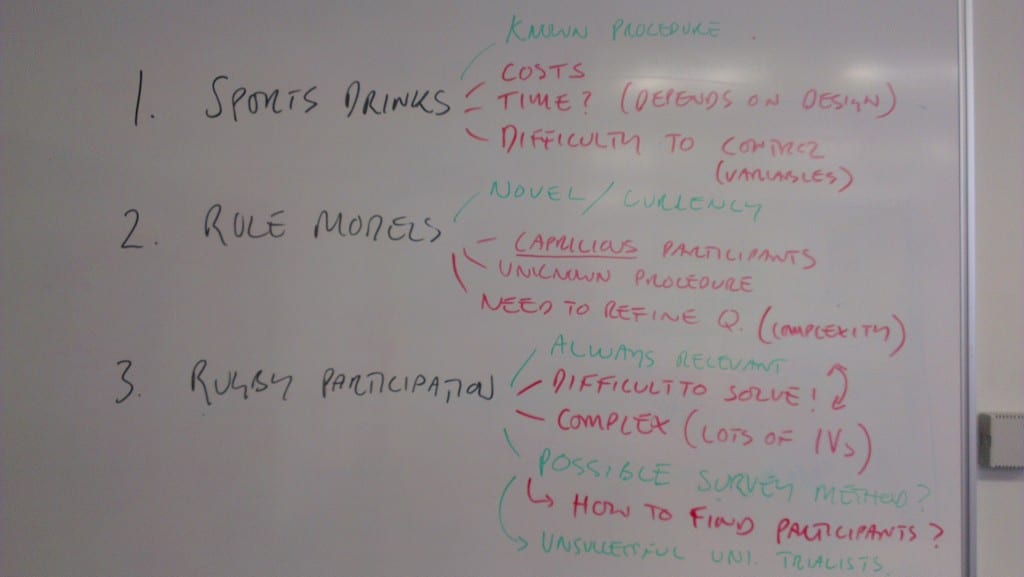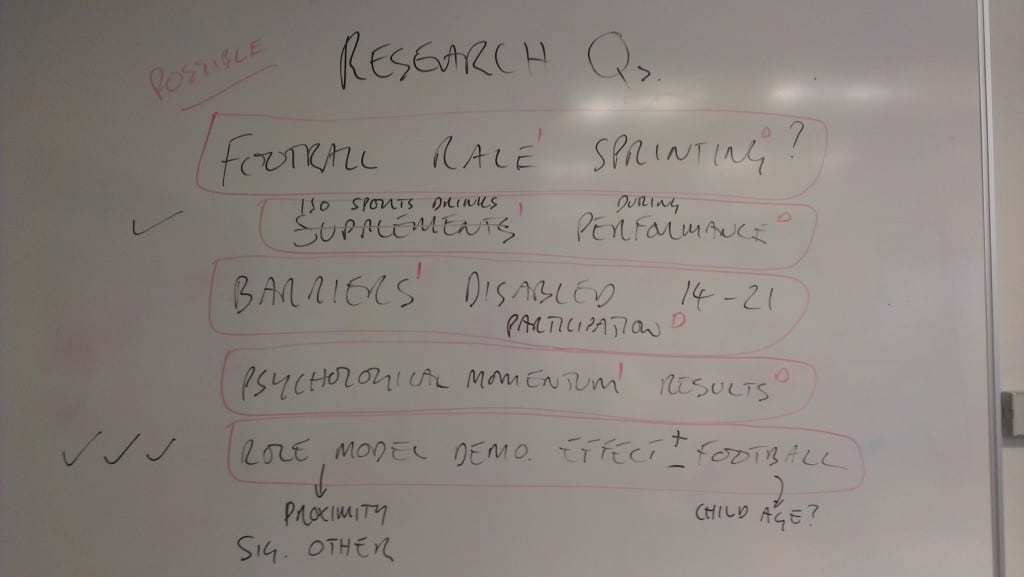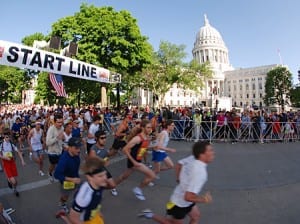This week our rather small group began to consider the content of the literature we found over the last week. I have summarized the findings of the academic papers in the table below:
| Paper | Main findings |
| Giuliano et al. (2007)
Gender & the selection of public athletic role models |
|
| May (2009) Professional black male basketball players as role models for young players |
|
| Lines (2001) Villains, fools or heroes? Sports stars as role models for young people |
|
In addition to the academic literature, we also did a qualitative content analysis of a few media articles that focused mainly on Luis Suarez as a role model for young players.
| Article | Quotes | Concepts |
| Lawton (2012) Suarez has become model, modern hero (The Independent, Dec 31) | ‘Suarez is, in his professional nature, quite simply the modern footballer.’
‘It may be strange to cast Suarez, given all his periodic betrayals of a superbly competitive nature, in the role of a hero.’ “He’s a big talent and a big worry” said van Basten (coach at Ajax) ‘Luis Suarez is an example to all of his fellow travellers down football’s easy street’ |
Modern footballer as conflicted (Hero/Villain)
Example to fellow travellers |
| ESPN Staff (2012) Rodgers hails master role model Suarez (ESPN.com, Nov 20) | ‘Rodgers believes Suarez’s work rate and confidence are a shining example for his teams mates and club youngsters, making him an ideal role model for aspiring strikers.’ | Work rate and confidence shining example |
| Telegraph staff (2010) Suarez handball against Ghana instinctive says Uruguay coach (The Telegraph, July 3) | (Uruguay manager) “I’m disappointed with some people talking about cheating. I think that is absolute rubbish. That is taking one for the team… helping one country of 3.5 million get to the semi-final”.
‘Suarez put himself in front of the whole country, and because of that Uruguay is going to the semi final.’ |
Taking one for the team
Putting team ahead of personal affairs |
| Powell (2012) Luis Suarez, role model! (The Daily Mirror, Nov 19) | ‘For Rodgers, [Suarez’s dazzling displays] are an inspiration to his young side’
‘With Luis, he’s a real reference for this team, because of what he brings… He has great confidence [and commitment] and that transmits to the team’. |
Inspirational
Reference for the team (setting a standard) |
| Cohen (2013) The BBC: It’s professional to cheat (The Spectator, Jan 20) | Savage explained how a professional sportsman thinks. He would know that he was not going to get a red card because he wouldn’t be fouling the last man. So he should, ‘bring the guy down, commit a professional foul, take a yellow card for the team. If he does that, Derby don’t score and NottinghamForest win the game. Simple as that.’ Guy from Lingfield made an even bigger fool of himself by refusing to agree with the professional. ‘No, no, I don’t think that’s a good attitude…in general for schoolchildren or other footballers, really, or for your own teammates.’
With a voice full of sneering incredulity, Savage said that his teammates would have applauded the foul (as I am sure they would). ‘It’s not cheating,’ he insisted. ‘It’s a yellow card, he takes a yellow card for the team…If you don’t like it, tough.’ |
Professional must do what it takes to win
Bad moral example for children
Taking one for the team |
Here we see evidence of Lines (2001) suggestion that the media paints conflicting pictures of professional role models. Suarez is at once both a hero (commitment, effort, skill) and a villain (racism, biting, cheating). There is also the notion here that cheating or behaving badly can be condoned if in the service of ‘taking one for the team’, or in the interests of the greater good. This is a complex moral argument. I wonder if children and young people would be able to grasp it?
FOR MONDAY…
Based on this analysis, I think it’s now possible to refine the question and offer some ‘tentative solutions’. Please reply to this post with your ideas for new, more specific research questions. Also, for tentative solutions, look at the table above and also have a quick look at Kohlberg’s stages of moral development in children as this might tell us at what age we can expect children to become “more discerning” judges of role models, as some of the literature begins to suggest.




